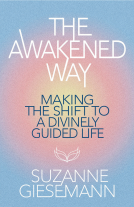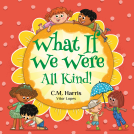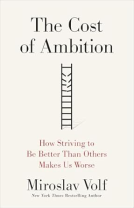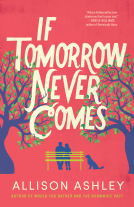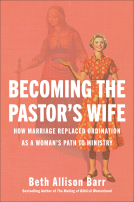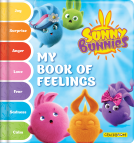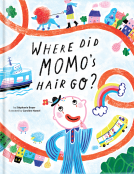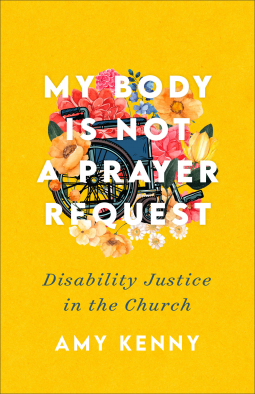
My Body Is Not a Prayer Request
Disability Justice in the Church
by Amy Kenny
This title was previously available on NetGalley and is now archived.
Send NetGalley books directly to your Kindle or Kindle app
1
To read on a Kindle or Kindle app, please add kindle@netgalley.com as an approved email address to receive files in your Amazon account. Click here for step-by-step instructions.
2
Also find your Kindle email address within your Amazon account, and enter it here.
Pub Date 17 May 2022 | Archive Date 27 May 2022
Baker Academic & Brazos Press | Brazos Press
Talking about this book? Use #MyBodyIsNotaPrayerRequest #NetGalley. More hashtag tips!
Description
"A convincing case for all Christians to do more to meet access needs and embrace disabilities as part of God's kingdom. . . . Inclusivity-minded Christians will cheer the lessons laid out here."--Publishers Weekly
"A book the church desperately needs."--Sojourners
Much of the church has forgotten that we worship a disabled God whose wounds survived resurrection, says Amy Kenny. It is time for the church to start treating disabled people as full members of the body of Christ who have much more to offer than a miraculous cure narrative and to learn from their embodied experiences.
Written by a disabled Christian, this book shows that the church is missing out on the prophetic witness and blessing of disability. Kenny reflects on her experiences inside the church to expose unintentional ableism and cast a new vision for Christian communities to engage disability justice. She shows that until we cultivate church spaces where people with disabilities can fully belong, flourish, and lead, we are not valuing the diverse members of the body of Christ.
Offering a unique blend of personal storytelling, fresh and compelling writing, biblical exegesis, and practical application, this book invites readers to participate in disability justice and create a more inclusive community in church and parachurch spaces. Engaging content such as reflection questions and top-ten lists are included.
Advance Praise
“Amy Kenny’s My Body Is Not a Prayer Request is holy ground. Kenny writes with devastating humor and uncommon depth that will remind readers of Anne Lamott. You will laugh, weep, and fume with rage—all on the same page. The words she writes will matter to you. They will change the way you see—everything. Kenny’s courage to say the things that need to be said is only matched by the skill with which she wields her proverbial pen. All hail this new and necessary voice.”—Lisa Sharon Harper, author of The Very Good Gospel and Fortune: How Race Broke My Family and the World—and How to Repair It All
“By times wise and tender, then grab-you-by-the-lapels prophetic truth-telling, Kenny’s passion, anger, and hope for disability justice is utterly embodied. I found this book to be not only a call to justice but an invitation to deep blessing. I will be pressing this book into the hands of every ministry leader I know.”—Sarah Bessey, editor of the New York Times bestseller A Rhythm of Prayer and author of Jesus Feminist
“In My Body Is Not a Prayer Request, Amy Kenny describes with wit and candor her experiences as a disabled Christian in worship services and Bible studies, but also in places like the DMV, high school, the doctor’s office, and Disneyland—showing, lamentably, how ableism at church looks just like it does everywhere else. She raises up the way of Jesus to practice holistic healing in the face of ableism’s holistic harms. Drawing from diverse biblical narratives and insights from disability studies, Kenny issues a convicting invitation to the people of God to live up to our deepest values and to stop excluding the necessary gifts of our disabled kindred, for the good of all. I will be giving this book to my disabled and nondisabled friends alike.”—Bethany McKinney Fox, author of Disability and the Way of Jesus: Holistic Healing in the Gospels and the Church
“In Amy Kenny’s outstanding debut, My Body Is Not a Prayer Request, she tells us this book is her unstifled scream. Are we listening? I am screaming alongside her when I read about how we as the church harm her and other disabled people. Kenny exegetes not only Scripture and individuals with precision but also the American system and the church. Our theology and our actions demonstrate that many are anything but pro-life—we are guilty of ableism and eugenics, and we need to repent. Kenny is among the sharpest writers and thinkers, and she offers the truth through beautiful writing, wit, wisdom, and grace while showing us the way forward.”—Marlena Graves, author of The Way Up Is Down: Becoming Yourself by Forgetting Yourself
“Incisive, witty, and revelatory, My Body Is Not a Prayer Request is a much-needed prophetic intervention against the ableist ‘common sense’ that prevails in many churches. This work is sure to be a balm for those who have ever felt sidelined because of ableist theology and sure to be a redemptive kick in the pants for the rest of us.”—Andre Henry, award-winning singer-songwriter, writer, and activist
“Through a series of fascinating, moving, and sometimes disturbing narratives, Amy Kenny takes us into the heart of the experience of disability and the practical and theological challenges that people face on a daily basis. In her experiential narrative theology, she brings to light the inadequacies of certain theological assumptions and at exactly the same time draws attention to the invaluable perspective that theology, thought through in the light of disability, brings to the life of the church and the world. The book opens up fresh perspectives that can help all of us understand disability theologically and appreciate our humanness more fully.”—John Swinton, professor in practical theology and pastoral care, University of Aberdeen
“Kenny’s book doesn’t just turn the American church’s misguided understanding about disability right side up. It invites the church’s members into the community of the beloved where disabled bodies and nondisabled bodies are seen, valued, and loved equally and holistically. Her book is a loving invitation into communal wellness. May it be so.”—Chanté Griffin, journalist and advocate
“Beautifully written and vulnerably shared, Amy’s message cuts to the core of ableism, whose culture has been allowed to roam unchecked in the church, perpetuating harm. Kenny calls us to be a more inclusive people, graciously and honestly helping us learn new theological insights, practices, and ways forward together.”—Michelle Ferrigno Warren, activist and author of The Power of Proximity
“Amy Kenny says this book is her scream! What resounds is the Holy Spirit’s empowering witness to the ends of the earth about what redemption in Christ looks like for a disabled person. This witness calls all of us nondisabled persons to repent of our ableism: how our assumptions about what is ‘normal’ make life more challenging for disabled persons. Be prepared to experience God’s saving transformation of our minds, our prejudices, and our ways of life so that we can go from seeing bodies like Amy’s as a prayer request to being part of a church that challenges the ableism in our world.”—Amos Yong, professor of theology and mission, Fuller Theological Seminary
“This book is sure to challenge churches in precisely the right ways. Amy Kenny writes with an honest, compelling, clear, and prophetic style, artfully weaving together personal narratives with rich biblical understanding. The result offers transformative possibilities for cultivating faithful communities of belonging for all.”—Thomas E. Reynolds, associate professor of theology, Emmanuel College, University of Toronto
Available Editions
| EDITION | Other Format |
| ISBN | 9781587435454 |
| PRICE | US$19.99 (USD) |
| PAGES | 208 |
Featured Reviews
It's difficult to describe the experience of reading Amy Kenny's "My Body Is Not a Prayer Request: Disability Justice in the Church," a book that I read both as a reviewer of literary efforts and as a disabled Christian and ordained minister who experienced the book as somewhat of a primal scream that uncompromisingly calls forth disability justice in the church that so often recognizes or dismisses disability and the disabled as less than, suffering, consequences of the fall, and/or all of the above.
Kenny, who obtained her PhD from the University of Sussex, is a a disabled scholar whose research focuses on medical and bodily themes in literature. Expertly weaving together personal testimony and experiences with biblical exegesis, Kenny has crafted a book that called out my own internal and externalized ableism, called me into action, made me laugh, made me shout, made me cry, and with her closing three words, which I won't share here, left me in tears and realizing how so very little I hear these words that are so fundamental to the human experience.
As I read "My Body Is Not a Prayer Request," I began exploring my own life growing up in the church with spina bifida and experiencing a lifetime of well over 50 inpatient surgeries alone along with multiple amputations, paraplegia, a brain injury, and a myriad of other health complications that have often left me doubting my place in the church yet, somehow, never doubting my faith.
I agree with Lisa Sharon Harper, as I usually do, who declared "My Body Is Not a Prayer Request" to be holy ground, Kenny's one that writes with both love and rage knowing that we worship a disabled God whose wounds survived resurrection. With remarkable vulnerability, Kenny shares her own experiences inside churches, healthcare, and other settings and the institutionalized ableist beliefs and practices that we, those with disabilities, are simply supposed to set aside either because things don't change or because those who practice them at least mean well.
Meaning well isn't enough.
As one reads Kenny's experiences alongside her tremendous accomplishments both personal and professional, it is impossible to not feel empowered and encouraged by "My Body Is Not a Prayer Request." She inspires, not in the way labeled "inspiration porn" by the late activist Stella Young, but in the way that recognizes the tremendous heart and soul work Kenny has put into living into her own voice even while surrounded by ableism in every day life.
As if her own testimony and biblical exegesis aren't enough, Kenny infuses "My Body Is Not a Prayer Request" with tremendous applicability including beautifully constructed points of reflection and pointed top-ten lists at the end of each of the book's chapters.
There is much to love about "My Body Is Not a Prayer Request" and there's simply no question it will be among my favorite books of 2022, both because it is incredibly written and because my own life experienced felt baptized by Kenny's words.
"My Body Is Not a Prayer Request" is a must-read for pastors old and new and should be required reading for seminarians everywhere. For anyone who works with or on behalf of individuals with disabilities, "My Body Is Not a Prayer Request" should serve as a necessary introduction into disability justice and creating more inclusion in church and parachurch spaces.
My favorite books are those books that change who I am as a human being and as a person of faith. While I have lived as a disabled person of faith for my over 50 years of life, I have long waited for a book such as "My Body Is Not a Prayer Request."
Finally, it has arrived. For that, and for the ministry of Amy Kenny I do give thanks.
From the second I saw this book's title and the brilliant and articulate woman who has authored it, I was eager to get my hands on it. Amy Kenny presents a term and explores a concept I've understood in my own life experience but not had words to attach to it: disability justice. I won't tell my husband's story, but he uses a wheelchair, and the all too frequent instances of glaring ignorance, intolerance, and inability to offer inclusivity have taught me a lot.
The author's writing skill combined with her timely and desperately needed message make this the best resource I've ever seen for those wishing to realign their thinking on disability. "I am what every athlete fears and what pregnant parents dread...People call my murderers 'merciful' because I am a burden and a drain and a waste. I am disabled."
Countless times I wanted to yell "EXACTLY" or "THANK YOU" or somehow beg....everyone to read this. She talks about how it is the way the world is structured that is disabling--and if there were ramps, for example, those using wheelchairs would be perfectly free instead of confined to only SOME buildings and barred from others (this is far more common than people who are not in wheelchairs realize).
All in all, a beautiful, powerful, essential book I cannot say enough good things about. Kenny's message to the world at large and the church in particular is decades overdue and exquisitely worded.
This was incredible. Amy Kenny has put an eloquent and powerful testimony of disability in the church out into the world. Through personal experience and scriptural references, she walks us through the everyday bias the disabled community faces in a space that claims to be welcoming and accommodating. I found a lot to improve on personally, as well as a lot of things in my local community that can be confronted. I will 100% be recommending this book.
 Reviewer 836475
Reviewer 836475
Disability awareness doesn't get talked about nearly enough in Christian circles. Plenty of sermons touch on racism, sexism, and classism, but I honestly don't remember ever hearing one on ableism. Instead, many Christians and churches continue to perpetuate harmful ideas about disability and often exclude our disabled brothers and sisters from feeling truly included in church.
The author does an excellent job of breaking down exactly where the church has fallen short and how Christians can do better. As someone already fairly familiar with disability advocacy outside of the church, I'd never truly processed how many Christianese things contribute to ableism from common verse interpretations to song lyrics to other forms of outright exclusion. This book has challenged me to rethink how I personally can be a better advocate within the church.
This is an important book, and I'd recommend it to all Christians but especially to those unfamiliar with accessibility.
This was very well-written, and I hope to read more by this author in the future!
Wow! “My Body Is Not A Prayer Request” is an insightful, humbling, and hopeful book. I feel privileged to take a look inside the heart and mind of a disabled person. I set aside my preconceived notions of disability and was met with beauty and wisdom I would have missed without reading this book. This quote is just too good to miss: “To assume that my disability needs to be erased in order for me to live an abundant life is disturbing not only because of what it says about me but also because of what it reveals about people’s notions of God. I bear the image of the Alpha and the Omega. My disabled body is a temple for the Holy Spirit. I have the mind of Christ. There’s no caveat to those promises. I don’t have a junior holy spirit because I am disabled. To suggest that I am anything less than sanctified and redeemed is to suppress the image of God in my disabled body and to limit how God is already at work through my life. Maybe we need to be freed not from disability but from the notion that it limits my ability to showcase God’s radiance to the church. What we need to be freed from is ableism.” Take the time to look into your own heart to see where these insidious lies might be showing up in your perception of the disabled. I know my heart and mind have been forever changed and a new set of eyes to see and honor the work and dignity of God within them
I highly recommend “My Body Is Not A Prayer Request” and hope you are able to read it and let the Holy Spirit convict, teach, and change you through Amy Kenny’s words.
I just reviewed My Body Is Not a Prayer Request by Amy Kenny. #MyBodyIsNotaPrayerRequest #NetGalley
 Eva L, Educator
Eva L, Educator
This is such an amazing and important book. Even as someone who thinks that they have some ideas about what it like to live with a disability (hey, my kid is disabled!) I was continually challenged and left staring off into space contemplating how the world works for different groups of people. Even if you are not a person of faith, this book is deeply insightful and absolutely necessary for anyone who needs to truly undertstand how ableist our society really is.
 Natasha K, Reviewer
Natasha K, Reviewer
My body is not a prayer request:
Hands down one of the best non fiction books I’ve read this year.
Amy shines a light on how society and the church is failing the disabled community, and how we all should be doing better.
I would recommend this book to anyone even if you aren’t in the religious space but especially for those that are. My body is not a prayer request will continuously be a book I come back to and each time I do I know i will gleam a little bit more wisdom from it.
Thank you to NetGalley and Baker Academic & Brazos press
 Reviewer 145564
Reviewer 145564
A powerful book that deserves 5 stars, My Body Is Not a Prayer Request is one I've already recommended to a dozen people within a week of reading. I learned and am changed from this book.
Through wit and wisdom, Kenny challenges all readers, not just those of faith, to recognize ableism and exclusion. This much needed call to advocate disability justice in word, deed, and setting should be required text for every church, every community, and the spaces each inhabit. With powerful, paramount messaging, Amy Kenny’s ‘My Body Is Not a Prayer Request’ is not only timely, it is an absolute game changer
If you read one book this year, it should be this one. Amy Kenny is brilliant and passionate as she discusses disability, the church, theology, and ableism. She truly brings disability justice to light with such grace, love, and honesty - and in a manner that one could only hope to emulate. My Body is Not a Prayer Request is truly an important and necessary addition to the disability conversation, and I would recommend this book to those who are religious and those who are not.
 Richard J, Educator
Richard J, Educator
I could not have written this book, but I needed to read it. Routinely I advise my students to allow people to speak for themselves, whether or not you agree with them. “Agreeing” and “disagreeing” aren’t actually relevant in considering what Amy Kenny has written; she has told her story truthfully, credibly, and powerfully and all of us need to hear genuinely what she is saying. My Body is not a Prayer Request is a hybrid genre: autobiography and theology. As a Christian ministry professor whose doctoral research focused on biblical studies, I am comfortable evaluating her theological reflections, and what I found here is thoroughly biblical, profoundly thoughtful, and saturated with the gospel. I dare not evaluate her story, but it resonates strongly with my second-person experience as the father of a young man with Down syndrome. Ultimately, all theology incorporates a measure of autobiography, and Amy Kenny has blended the two modes wonderfully. I am appalled at what she has endured from some people, I am encouraged by her hope and stamina, and I am hopeful that the church can become the community she envisions. We (I. e., the church) can and should do better than we have done. Thank you, Amy Kenny, for pointing us in the right direction.
I’ve been savoring an advanced copy of My Body Is Not A Prayer Request by @dramykenny and am pretty sure it will end up being one of my top books for 2022. And since I’m reading it on my kindle, I thought I’d share a favorite quote (one of MANY):
“A person’s feelings of discomfort should never be in competition with someone else’s belonging.”
Whether you know someone or are someone in the disabled community or not, this book is for all of us.
I love how Dr. Amy Kenny talks about how our flourishing is connected. We all benefit when someone else flourishes, and she shows how this gets to be true over and over again.
I am so grateful for her perspective that many of us are only temporarily able-bodied. We will all experience brokenness in our bodies, whether that comes from aging, sickness or disability. Being dependent and having needs is how we were made. This is part of the good news of the gospel. I’m so grateful for the lens of disability brought to scripture and the embodied hope it offers.
Even the parts of this book that have been convicting or hard to read are good and true and needed. I’m learning a lot and am so grateful for the courage it took to both write and live this book.
I don’t often recommend books before I’ve finished them, but this one seems worth the exception. If I could press this one into your hands, I would. We all need this message of embodied hope and the invitation to reconsider how we love our neighbor.
This book is amazing! I ended up reading it through in one sitting as I kept finding my own experiences and thoughts within the pages. While disabled people make up the largest minority group as we are all spread out and not geographically located together sometimes you can wonder if you’re the only one who experiences ableism in a certain way, reading this it appears that is far from the case.
Amy Kenny writes with a strong and powerful yet clear voice about her experiences as a disabled person within both the Church and society at large. She points out how often narratives create disability as something that is entirely negative and that inclusion can easily be written off as unnecessary due to a variety of reasons. At no point though does Kenny come across as moaning about the situation instead she sets out how the current situation is not the best society can be and why before making suggestions on how to make positive changes. In many ways the book is a workbook that Churches could easily go through to reflect on their own communities and inclusivity. Kenny includes sections on both physical inclusion but also thinking about what language we use too. What stood out for me was her interpretations of different aspects of theology and how curing someone physically and healing can be entirely different things.
I did feel that the primary target of this book is probably for able bodied people and is definitely a very good starting tool to get people thinking (and hopefully acting). That being said one of the end questions Kenny asks of the reader is, ‘How are you different for reading this book?’ and for me it was very much a case of feeling of belonging and appreciation that other people out there facing similar barriers to me are actively making changes and I suspect other disabled people will feel similar.
Every Church needs a copy of this book!
Also I am going to have to steal the analogy of ‘Ableism malaria’ (if curious as to what that is definitely read this book!)
Thank you to NetGalley and the publisher for sending me an ARC in exchange for an honest review. Thank you too to Amy Kenny for writing this and being the voice of many people.
Dr. Kenny gives a first hand account of what it’s like to have a disability and live in a world that varies in response from denial to blame shifting and gaslighting.
This would be enough of an eye opener on its own, but much of the book wraps around her account of ableism in the church and how it has impacted her life.
Spiritual abuse is a major theme throughout the book. This is important because her examples of this highlight the discomfort the church has about the disabled and the opportunity they have missed in excluding them.
If the church could get past trying to miraculously cure people and focus on bringing all people together to heal hearts and lives, they would have the kingdom mentality that Jesus brought with him to this broken world.
Thanks to NetGalley and Brazos Press for an ARC of this book.
 Reviewer 910310
Reviewer 910310
This book showed me a perspective I haven't seen very much in the church. I agree with Dr. Kenny that the church often does not put anyone with a disability front and center (unless they are a visiting speaker). They tend to parade the "normal" and "beautiful" people. I never realized how many Christian lyrics and sermons contain words that disrespect those with disabilities. That was eye opening for me and something I will apply in my life as well. I will edit my writing with that in mind. I also realized how many sermons I have heard where the emphasis is put on a disability being healed. There are many things like that which I recognized and gained a new perspective on.
I grew up in a church that had Joni Eareckson Tada visit several times and I also read her book at a young age. In my eyes, she was and is a hero. There was also a disabled member of my childhood church who was heavily involved. He participated in everything from karate to ushering, and volunteered in the children's ministry. He could barely speak and was in a wheelchair. Off the top of my head, I can think of several disabled members who participated in everything. My mom often picked up disabled members who could not drive. I mention all this because these experiences and church members made me feel like those with disabilities were no different than anyone else.
I am not disabled. But, I have had my fair share of health issues to which Christians have responded by telling me things like "they're praying for me" instead of helping or even asking if I want prayer. I am also guilty of thinking some of these healing sentiments about myself. That specific topic resonated heavily. I realize that the church I was raised in may have been outside of the norm in their treatment of disabled members and that's why, to me, some of the issues Dr. Kenny mentions did not seem to be rooted in how Christians treat disabled Christians but, instead, issues with Christians in general. I wrestled with mentioning this because I do not want to discredit Dr. Kenny's experience, but I also want to acknowledge that a lot of the examples Dr. Kenny provides also happen to Christians without disabilities. In the same way she has been treated, I have watched new mothers, single mothers, former addicts, new Christians, new members, etc. receive the same treatment by Christians (not necessarily the church overall). If anything, I felt this shed light on the unChristlike way many Christians are. Good for Dr. Kenny for saying something.
Overall, I felt this book landed somewhere between a Bible study book and a memoir. Each chapter began with a memoir introduction and then ended in a study. I did not agree with all of Dr. Kenny's Biblical interpretations. I also did not think all of them tied into her memoir pieces. Being half study, half memoir, the book felt like it just scratched the surface of both. This is a great introduction book to this topic for the church and would make a wonderful book for a Christian book club and study. I enjoyed the workshop bits at the end of each chapter and did most of them.
Going into this book, I had never read about disability justice through the lens of the Church. As a Catholic, I am familiar with the focus on healing narratives in the Church and have struggled with them since being diagnosed with a chronic illness.
This book definitely shifted my thinking around these narratives and made me curious to continue studying Scripture through this lens. Beyond that, it gave me insight into aspects of the disability community that I am not as familiar with, and helped me to better understand certain issues such as the importance of the language we use around disability and in our everyday lives.
At moments, I felt the book got caught up in metaphors which detracted from the strength of its message, but overall it was an interesting and compelling read.
This book is excellent, deeply necessary, and ought to be mandatory reading in every church.
Dr. Kenny has given us an absolute gift with her no-holds-barred honesty and vulnerability. She's laid out for her readers what ableism is, what it can look like, what it's impact on disabled people is, and what we can do to begin the lengthy process of unlearning it. With a grace that the church, by and large, has not earned, Dr. Kenny tells us what it will take for disabled people to truly feel like they belong in our churches and what we've been missing out on through our exclusion of them. Non-disabled readers will feel constantly convicted as they read, but the beauty of this book is that Dr. Kenny invites us to view that conviction as a starting point for learning, growth, and action. We could hardly ask for more.
 Ivy A, Reviewer
Ivy A, Reviewer
I really enjoyed this book. A unique (at least to an able-bodied person) look at the Gospel. I liked that the author included portions of Scripture that represent disabled individuals, and not just the Scriptures of the disabled individuals getting cured of their disability. This book really makes you think (and even includes reflection questions) and figure out next steps you can take to make your church (and world) more accessible to everyone. Definitely a book anyone in ministry needs to read.
"I have the right to flourish. To be considered an image-bearer equipped with my own gifts. To be a leader. To use my own voice instead of being a mouthpiece for what you want to say on my behalf."
"God sure focuses on the lame when giving us glimpses of new creation and restoration. God doesn't remake bodies to fit the world but restores the world to welcome our diverse bodies. God's kingdom is built around disabled people, and so, too, should our churches, as they are appetizers for the banquet of the kingdom."
"Imagine the possibilities if we experienced bodily difference not as defect or loss but as a unique opportunity to experience the diversity of a vast creator God. It just might make the body of Christ healed and whole."
I received a complimentary copy of this book from the publisher via NetGalley. All opinions expressed in this review are my own.
Dr. Amy Kenny perfectly discussed what it means to be disabled and Christian. And really, what it means to be disabled in our modern world at all. She perfectly critiques the church in its ableism while also offering ways to fix that learned behavior. She does an amazing job at breaking down ableism in our society and law and shows just how much still needs to be changed for their to really be accessibility for everyone.
As someone who has been disabled for most of my life, Kenny's story hit home. The battle of trying to get the world to see you as valuable when you're disabled is real and true. More so, as someone who grew up disabled AND in Catholic school, she hits the nail on the head for the changes that absolutely need to be made in how the church handles disability.
 Reviewer 822715
Reviewer 822715
Thank you so much to Net Galley and to the publisher for providing me with a free copy of "My Body is Not a Prayer Request" by Amy Kenny in exchange for an honest review. All of the following opinions are formulated on my own.
5 out of 5 stars
First, I do not often read Christian books and I probably won't start - none of that is based on this book! I mainly decided to read this upon the description. I am a disabled person who has stepped away from the church for the most part due to how I have been treated since my diagnosis.
While this book would not be a comfortable book to read for most able-bodied people, I think it is the reality of what is happening and I felt very heard reading this from Amy Kenny.
I received this ARC in exchange for an honest review: 4 stars
I really liked this book. It is definitely written for nondisabled people but I did learn some new things. I wish there was a bit more for us but I understand this book is meant to educate nondisabled people. I would suggest this book to any Christian disabled or not (especially those in leadership positions). I hope this book ignites a movement within the church. We desperately need more accessibility and understanding.
This book really does a great job of covering what it means to be disabled not only in the church but in the world at large. This book really hit home for me.
My Body is Not a Prayer Request provides a theology of disability in a way that is persuasive as well as practical both inside the local church as well as in the local community. Ableism is entrenched in society and Amy Kenny shares examples that many may not realize are the shared experience of our neighbors with disabled bodies. She challenges that accessibility ought to be a standard rather than an exception. That all bodies are made differently and our communities and churches should reflect that, without exception. The experience of invasive prayers or advice for healing was one that resonated with me personally and something many have endured. Dr. Kenny speaks with passion and personal experience, while also handling scripture with skill. This is a book long needed in the church and will open up opportunity for listening, learning, conversation, heart change and space making.
 Librarian 981294
Librarian 981294
One-part activism, one-part fact-spitting, this book packs a punch. Sorely needed in today's religious climate, Kenny touches on a subject that I've never read in-depth before, but definitely hits home for a lot of people. My father suffered from chronic illness my entire life, and I was raised in the church. The congregation prayed for him and asked me (a 7-year-old, at the time) how he was doing. I got the ick from it after like, five years of "he's ok, thanks," but never had the words to explain why.
For the first time, someone explains the ick I felt when my church prayed for my chronically ill parent, week after week after week- for years, but I couldn't name why it felt so bad. This names it.
What an incredible and important book! Dr. Kenny does a wonderful job engaging with a heavy topic and giving practical tools for all of us to become more aware and inclusive in our communities and places of worship., which have been inaccessible for so many for far too long. I would absolutely recommend this book to anyone looking to learn more about disability justice and their own role in creating and advocating for a more accessible world - regardless of faith association or not.
As someone who has worked with disabled children and adults for the past seven years, this book reminded me of the role I play as an advocate, as well as exposed places where I still have much to learn.
This book was beautifully written and I am so thankful that I was blessed with a digital copy of my own to read!
This is a great overview of the author's experience with ableism and Disability Justice, with specific scriptural tie-ins as faith-based evidence and support towards building a more inclusive Church experience. I especially liked her distinction between the concept of being "cured" and being "healed", and how the type of healing that her faith provides may not always look like the type of body or lifestyle uplifted by ableist ideals. This book does focus on the author's specific experience, so there is not much discussion around how disability can intersect with other marginalizations, such as race or queerness, but many of her discussions are framed in a way that does translate to a broader experience- for example the section about microaggressions. This book is definitely targeted towards a practicing Christian audience, but there is so much in here about disability experience and justice that would be valuable to any reader.
 Ashley H, Reviewer
Ashley H, Reviewer
My Body is Not a Prayer Request is an extremely transparent and helpful. In MBNPR, Amy Kenny writes about disability in the church, while sharing her story and the impact of many experiences she’s had. This is a book that would be beneficial in any church library and can be a tool for growth in any believer. I have been encouraged, challenged, and prompted to repentance in many areas while reading. I am almost speechless after reading this book and I am so thankful to Amy Kenny for writing it. I cannot recommend this book enough.
You are likely accustomed to my romance reviews. This one is a clear departure, but one I feel I need to include, as a Christian disabled woman.
And I'll just say it now, repetitive though some of these chapters are, this is an important book. Not just for disabled people, nor just for churchgoers who claim disabled people would be healed if they prayed more.
This is important for everyone.
The author shares the societal norms a disabled person endures, like intrusive questions, offensive language, inaccessible public places, exclusion from activities and community...and then points out that this is a social construct. That the world around us (read: the people in it) have the ability to create activities, build buildings, establish community, with disabled people (as opposed to able-bodied people) at the forefront of minds and plans.
She pulls from her lived experience and from Scripture then, to show believers that Jesus Himself is disabled in the crucifixion...and He is God and man. Thus she says, God is disabled (pointing to Luke 14 often.)
There is so much more in this book. But rather than summarize the rest, I want to share my thoughts.
I'll be honest. It physically hurt me to read this book. I avoided it, and when I finally did pick it up, I read it in bite-sized pieces. I finished it rather than DNF'ed though, because this book is MY experience, and it is really well written. It just happened to be a heavy read.
I felt everything the author described about her experiences: the hurt, frustration, forced patience (and actual patience) as a result of others' choices. I relate to it on a physical, mental, emotional, and spiritual level.
The author's words gave me the push I needed to see that:
My disabled body is beautiful.
It is not wrong to be hurt by slurs, nor is it wrong to correct them.
My disabled body is as much an image of God as my able-bodied peers, and
My disabled body is not a prayer request, as something to be delivered from. It is something to celebrate. I am someone to celebrate, just as every disabled person.
None of us are promised perfect bodies—not even Jesus. According to the Gospels, even a post-resurrection God Incarnate emerged from the tomb with scarred hands and feet.
The Christian God is no stranger to disability and disfigurement.
And yet, as author Amy Kenny, points out, ableism flows freely through many of our Christian churches, homes, and in the wider culture.
In this unflinchingly honest and compassionate book, Kenny points out the many ways Christians have created theology and practices that deny the full humanity of people with disabilities.
Kenny relates her personal stories of the harmful words and treatments she has received from the Church, the ways she’s felt ignored, and the ways she’s been taught that she is less than whole as she is.
Though the stories and truths in this book are often uncomfortable and unsettling, Kenny shares her heart with the reader with an abundance of kindness, wry humor, and hope.
My Body is Not a Prayer Request is convicting and encouraging and an important read for everyone, whether or not you plan to set foot in a physical church building again.
Thank you to the Amy Kenny, Brazos Press, and NetGalley for providing me an advanced digital copy of this book for review.
Disabled people are made in the image of God and should be treated accordingly. Unfortunately, the reality is that the disabled are often mistreated, ignored, shoved to the side, treated as less than human, and much more. This should not be so. It especially should not be true in churches, but we seem to be the worst.
This book feels part memoir, part theology, and part sermonic. It's hard to pin down in any category other than to say that it should be read. It gives you a picture of what life as a disabled person is actually like. It is not a false inspirational only story, nor is it a story of simply suffering and lament. It is a human story. The story of a woman made in the image of God who has something to teach us.
There is so much Christianese and faulty theology this book reveals and corrects. She does good theological and biblical work. She mines Biblical stories and texts to show what they actually say about disability and God. I found myself having to reconsider texts in a new light. I also learned how hurtful the cliches Christians spew truly are.
It concludes each chapter with good and helpful reflections and responses. I am always tempted to skip these sections in books, but I found these particularly good. They also each have top ten lists. Usually, these are lists of 10 ridiculous things people have told her.
If you think disabled people are made in the image of God, then you should read this book. You probably are blind to the ways that you dehumanize and mistreat the disabled around you. I would especially recommend this to pastors, or those who serve in churches. We have to be better in this area. But we will never get better if we do not listen.
I received an arc of this book from netgalley.
My Body is Not a Prayer Request: Disability Justice in the Church by Amy Kenny is part memoir, part Biblical analysis, and part guide for how to include disability justice in a church or religious community, I could not put this book down. Growing up I constantly watched strangers interact awkwardly with my mom because she used a wheelchair. I saw people stop her and have invasive conversations about her medical history, and cannot even begin to count the number of times people told her they would pray for her to be able to walk again. Now, I can’t speak to how my mom felt about this, but reading Kenny’s word I felt like I was gaining a vocabulary and Biblical grounding for why such interactions always left me feeling really unsettled.
For me as a reader, I was excited about this book not for it to radically change my way of thinking, but to give me a frame of reference for how to talk about these issues that I care deeply about. One of the brilliant things Kenny does is give her readers action items. At the end of every chapter there are questions to ask yourself or your community, to keep the discussion going and refuse to allow people to feel complacent and like they’re doing good enough work just by reading the book (because meaning well is absolutely not enough, as Kenny makes beautifully clear). But even though I felt like I knew a lot going in, Kenny’s writing showed me so many points where I should strive to improve and engage in reflective self-analysis.
For anyone who is intrigued by the phrase ‘disability theology,’ I think this is the absolute perfect book to start with. She balances memoir and theology perfectly, and writes without any pretension but with deeply scholarly knowledge. This is a book full of conviction and rage and power. Whether or not you attend a church or identify as Christian, this is a very worthwhile read, as it is not just the Christians who can be ‘prayerful perpetrators.”
Thanks to the publisher and NetGalley for the ARC and the opportunity to read and provide an honest review.
I almost wish that Amy Kenny's excellent memoir wasn't marketed so strongly as Christian. Not because I don't respect her faith and her advocacy for disability rights in the church. But because I think a wider audience needs to read about her experiences. She writes about fighting for equal treatment in high school, strangers questioning her need for a disabled parking placard, the challenges of qualifying for federal disability, and struggling through our biased medical system. But she also has powerful things to say about the profound hypocrisy of churches treating her like a potential miracle and an inconvenient burden at the same time.
Good selection for mid-sized and large public libraries.
This book touched my soul and gave me a voice with under two hundred pages. It was impactful with my personal struggles while challenging me on a corporate, church level. I don’t feel adequate to express how much I loved this discussion of disability in the church. I could relate the judgment and doubts that the people in the building express. I have struggled with that for so long that it is easy to believe but I now view my disabled body in a different light. This book has helped with that change in perspective. I think that this is a book that the church needs to read in order to fully embrace the disabled.
I received an arc via Netgalley in exchange for a honest review.
 Lindsay O, Reviewer
Lindsay O, Reviewer
“To assume that my disability needs to be erased in order for me to live an abundant life is disturbing not only because of what it says about me but also because of what it reveals about people’s notions of God.”
“Jesus’s ministry is not all about a physical cure but about holistic healing.”
This phenomenal book is moving straight to the top of my recommended reads! Dr. Kenny shares prophetically about how to embody disability justice in the church, which is unfortunately in contrast to her lived experience as a disabled person. She explains how ableism harms everyone, not just disabled people, because it falls short of Jesus’ intention for the Kingdom of God.
Dr. Kenny exegetes familiar scripture passages through a disability justice lens, adding a layer of richness that has greatly expanded my view of God and holistic healing. Each chapter has questions to facilitate crucial conversations.
Dr. Kenny’s description of a world in which “all bodies have needs that must be met without shame” helped me examine how ableism has contributed to my feelings of inadequacy, particularly as a person with anxiety disorder. I have struggled with the shame attached to my mental health, which has been compounded by well-meaning Christians who preached what I now recognize was an ableist gospel. I felt liberated when I considered that I don’t have to wait until some future time when I am “delivered” from my anxiety but can experience the abundant God intends for me in the here and now.
Dr. Kenny’s voice is prophetic, holding in tension a much-needed critique of the current reality while inspiring us with a picture of how things could be. I can’t recommend it enough!
Amy Kenny does a really beautiful job weaving this book together. It’s part history/policy review, part memoir, and part scriptural exegesis and it fits together wonderfully. I wish there had been a little more discussion of inclusion of intellectual/developmental disabilities, but as Kenny has a physical disability that’s the experience she shares.
I listened to the audiobook, read by Nan McNamara who did a nice job. Her narration was clear and inflection really brought out the humor and sarcasm in places. I found myself going back to the print copy to highlight and make notes.
Thanks to Baker Academic & Brazos Press for the gifted copy. All opinions are my own.
If you are able-bodied, you most likely have never really thought about how disabled people move through the world. You've most likely never pondered how the most mundane tasks, can be insurmountable for disabled folks. Similarly, as someone who grew up going to church, I never thought about the intersection of religion and disability. As many of us are continuing to fight to make the world a more equitable place, disability justice continues, at times, to remain on the periphery.
Amy Kenny's My Body is Not a Prayer Request should be required reading for everyone. This book was truly enlightening to me. I highlighted 80 passages of text that touched my heart, mind, and spirit. Ableism is woven into the fabric of our society and the language that we use. I strongly encourage you to read this book and others to learn more about the disability community. July is Disability Pride Month, so now is a perfect time!
I give this book a resounding 5 stars, and I look forward to reading more from Kenny!
This is a wonderful intersectional look at the relationship between the person and the church and I enjoyed reading it as part of my reconstruction journey!
This book was an eye-opening book about the experience of what's it's like to be disabled in the church. If you are able-bodied, read this book. It will change your perspective.
Written partly as a memoir, Amy Kenny describes many ways the church has treated her with opposition and antagonism because of her disability; it's enough to drop your mouth wide open in shock and righteous frustration.
Her discourse is urgent, passionate and frank with layers of sarcastic humour. I think it's hard to help others see another point of view with this tone, but I believe it stems out of a lifetime of frustration with people who follow Jesus treating her as less-than instead of imago dei. And while I disagree with some of the theology, hearing her story has encouraged me to be more intentional in providing for the needs of others.
*Thanks to Netgalley and the publisher for the ARC and the opportunity to post an honest review.
I want to share this book with everyone. It should be required reading for church staff or anyone in Christian ministry. So often we can harm and belittle those we are trying to love.
 Amy L, Reviewer
Amy L, Reviewer
Amy Kenny has written a book that all those in church leadership should read. As a parent of a child who needs access to special accommodations at church, it's had me thinking about accommodations that others could benefit from as well. This book brought even more to my attention than just physical accommodations though! And I highly recommend this book!
While this book was very eye-opening, it also made me sad. In 2022 (some 30 years after ADA laws were put in place), no person should have to endure this kind of treatment. Perry shares the many horrific treatments she’s received as a person with a disability. Perry had to repeatedly prove her disability even after she had all the proper documentation. There’s no excuses for these infractions. But like Maya Angelou said, “when you know better, you do better”. This book is a start for all of us to do better. I strongly recommend this book for anyone that works with people.
Not an easy read, but the author has stubbornly forged a relationship with the Christ who saves us. The big takeaway I'll continue to think about is cured versus healed. If we are made in God's image, aren't disabled people already whole in Jesus? Being transparent about situations handled poorly, the thoughtless things people have said, our wrong theology about Jesus's healing powers, and how the church must do better, this book will leave you rethinking things. I've long thought we had our theology wrong here, and this book joins a handful of others who are teaching me a better way.
 Reviewer 815381
Reviewer 815381
A beautifully written book about disability theology from a personal perspective. This is a great read for a church Bible study, book club, or discussion group. If you are looking to better understand the experience of a disabled Christian, to accommodate disabled people more, or how to be a better friend to a disabled person, this book will be helpful for you.
Society talks more about disability and is including the disability community more in those conversations, but as Kenny explores in her book, the Church is often behind the times in this area. This book turns worship on its head by exploring the Church, the Bible, and God themself in terms of disability and how we need to make the disability community more comfortable within church communities.
This book spoke to me, because even though my own disabilities are “invisible,” I live my life around them and want to be included and considered in all of my communities, including my church community. I tore through this book and it really resonated with me. If you are a person living with disability, it can help you feel less alone and remind you that you are deserving of what you need, and if you are not part of the disability community, it’s an opportunity to listen to the voice of someone who can help you to create a welcoming space for those with disability in your church and in your every day life.
Definitely recommend checking this one out at your local, indie bookstore or library.
 Beth M, Bookseller
Beth M, Bookseller
Oftentimes the church is the last institution to get on board with something society at large has already embraced. That includes anything having to do with compassion and understanding.. They may comply with building codes to obey the bare minimum of the law, but not many in the church felt the need to do more than that. Forget leading society in the call for equal access to facilities and activities. Forget easing the way for those who find stairs impossible. It's about time someone shined a light of hypocrisy of the able-bodied..
I'm only 5% into this book and wow. I think every Christian needs to read this.
My biggest complaint is that it reads more like a research paper than a novel, which was fine in the beginning but I began to get distracted as the book progressed. The content is so important that I powered through and I'm so glad I did!
Favorite Quotes:
"Some of the irony is that my life isn't disastrous or deficient at all. Most days, my disability isn't the worst part of my day, or even what I need prayer for. To assume that my disability needs to be erased in order for me to live an abundant life is disturbing not only because of what it says about me but also because of what it reveals about people's notions of God. I bear the image of the Alpha and the Omega. My disabled body is a template for the Holy Spirit. I have the mind of Christ. There's no caveat to those promises. I don't have a junior holy spirit because I am disabled. To suggest that I am anything less than sanctified and redeemed is to suppress the image of God in my disabled body and to limit how God is already at work through my life. Maybe we need to be freed not from disability but from the notion that it limits my ability to showcase God's radiance to the church. What we need to be freed from is ableism."
A big thank you to NetGalley for an ARC of this one!
 Jen E, Reviewer
Jen E, Reviewer
Thank you to NetGalley and Amy Kenny for my Advanced Readers Copy of My Body is not a prayer request. My thoughts and opinions are my own and given voluntarily.
As a disabled woman this one grabbed my attention quickly, even though I am not super religious. But i think there is a lot in this book that needs to be said and read, even for the non-religious individuals.
The book, while important topics, did lose my interest as it felt like i was reading an academic like paper, but still important read I think.
As a recently disabled person, I read Amy Kenny's book with great interest. I am new to realizing and rejecting internalized ableism so I found that this book sparked a lot of good conversations about how I and others fit into the Christian faith as well as the Church with a capital C. In the middle of the COVID pandemic - an ongoing mass disabling event - My Body Is Not a Prayer Request couldn't be more (unfortunately) timely.
There’s a lot to unpack in this book! I feel grateful to the author for her vulnerability and transparency, and I do feel like I learned from this book. I would say the pacing is slow and heavy, which made me drag my feet on reading it a little bit, and I do wish that there were more actionable items mixed throughout; they felt present at the end of the book but absent at the start, which led to a feeling of “okay, everything we’re doing is wrong but how do I do better.” Perhaps unintentionally, that can feel like an attack when the readers who pick up this book are already at least interested in doing the work, but I also recognize it’s not the job of disabled people to educate general society on how to do better. Lots to wrestle with. Thank you!
This is such a fantastic read. When able-bodied people look at disabilities we often see either something that needs to be fixed, or believe that suffering sanctifies and is it’s own good. I appreciate her assertions that she is fully the imago dei, just as she is. This is something we should all read.
I found this a tough but important read. Being a Christian and disabled can be extremely difficult and I love that this book has been written! Hearing the authors experiences was helpful to me and I know it will help comfort and help towards the healing of all those people who have been hurt by feel like they are an unanswered prayer.
 Kathy K, Reviewer
Kathy K, Reviewer
We had the author on our podcast, and it was a great conversation on the topic of ableism and Christianity.
This was a moving account - personal woven with data and Scripture - that invites readers to reconsider how Christian faith does not always match the physical practices in welcoming all bodies into community.
The title is provocative and anyone who has been a part of a church should feel their ears perk up at the title and a little pang in their heart. What do we really think about disability and its place in church life? What do we really think about our bodies and what healing is and isn't?
A wonderful book to add into any disability scholars’ library. I think this adds some much need nuance to conversations around how churches perceive themselves versus the harmful ideals they often actually perform.
 Angie k, Educator
Angie k, Educator
I had been meaning to read this one for a while and I am glad I finally got down to it. I probably should have read the subtitle, "Disability Justice in the Church" as I didn't realize quite how much religion and disability specifically in the church setting the book would have, but that being said, I did appreciate this perspective. Kenny does a great job bringing in a perfect mix of religious content, disability rights/advocacy and pop culture references (my favourite was of course Leslie Knope with the sloth from zootopia coming in a close second). I also liked the analogies and descriptions she used to make readers understand her perspective. One example that stood out to me was the microaggressions as mosquito bites analogy because it shows that while they may be easily dismissed as not a huge deal, over time they add up (or if you're like me and are allergic to them, they swell up and definitely don't go away easily, so I definitely understand this idea of microaggressions not being so easy to ignore). I also liked her anecdotal ideas like people dragging out vowel sounds in words signals awkward feelings and how "faking disabilities" is a more common trope on tv than I would have realized, and in that, how harmful that is. Her facts and messages were also really important. She said that 67% of people feel "uncomfortable" talking to a disabled person, and as awful as that sounds, I wonder if it is actually an underrepresentation...
I would definitely recommend this book for anyone interested in learning more about disability advocacy and rights, as well as for anyone who might want to rethink the way that the Church and religious people often view people with disabilities. It is well written and has some really great information as well as other thought provoking reflection opportunities. Thanks to netgalley and the publisher for giving me the chance to read and review this one!
Readers who liked this book also liked:
Riki Wilchins, Clare Howell
Biographies & Memoirs, LGBTQIA, Parenting & Families

